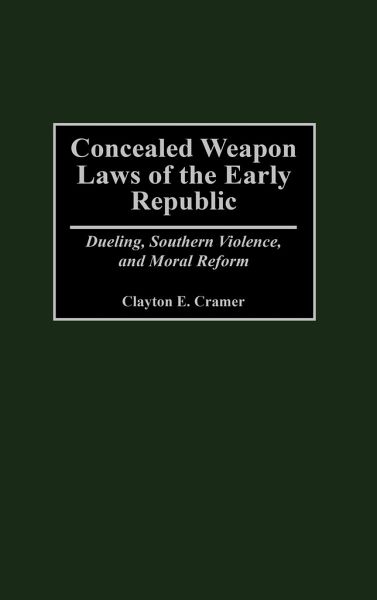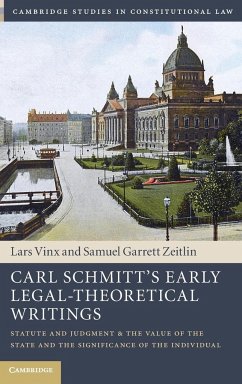
Concealed Weapon Laws of the Early Republic
Dueling, Southern Violence, and Moral Reform

PAYBACK Punkte
44 °P sammeln!
Cramer's work examines the motivations and legislative history behind the nation's first laws regulating the carrying of concealed deadly weapons and establishes a previously unexplored link between these laws and efforts to suppress dueling in the southern back country. Earlier attempts to analyze these laws focused upon efforts to maintain slavery by severely restricting the rights of free blacks: if free blacks could not possess arms and lacked other basic rights, slaves would be less inclined to seek their freedom. Cramer rejects such thinking by demonstrating that the concealed weapon law...
Cramer's work examines the motivations and legislative history behind the nation's first laws regulating the carrying of concealed deadly weapons and establishes a previously unexplored link between these laws and efforts to suppress dueling in the southern back country. Earlier attempts to analyze these laws focused upon efforts to maintain slavery by severely restricting the rights of free blacks: if free blacks could not possess arms and lacked other basic rights, slaves would be less inclined to seek their freedom. Cramer rejects such thinking by demonstrating that the concealed weapon laws of the early republic were not racially-motivated. He further supports the work of other scholars who have lately examined the role of Scots-Irish immigrants in creating a distinctive southern back-country culture of honor violence including dueling and brawling. It was the attempt to control such violence, Cramer argues, that led to the concealed weapons laws. Thus, rather than considering gun control laws primarily as legal or constitutional history, this study starts from a cultural and historical viewpoint. Southern state legislatures sought to improve the morals of their back-country population through increasingly severe punishments for dueling. When judges and juries regularly refused to convict duelists, these legislatures created extrajudicial punishments by requiring elected and appointed officials, as well as lawyers, to swear oaths of non-participation in dueling. Young men, obsessed with honor and reluctant to perjure themselves for fear of damaging their public reputation, soon took to carrying Bowie knives and handguns with which to kill those who insulted them-a perfectly honorable action to much of the population. The state legislatures then severely regulated carrying of concealed deadly weapons in the hope of suppressing the bloody results of what had been, until then, an accepted practice.













